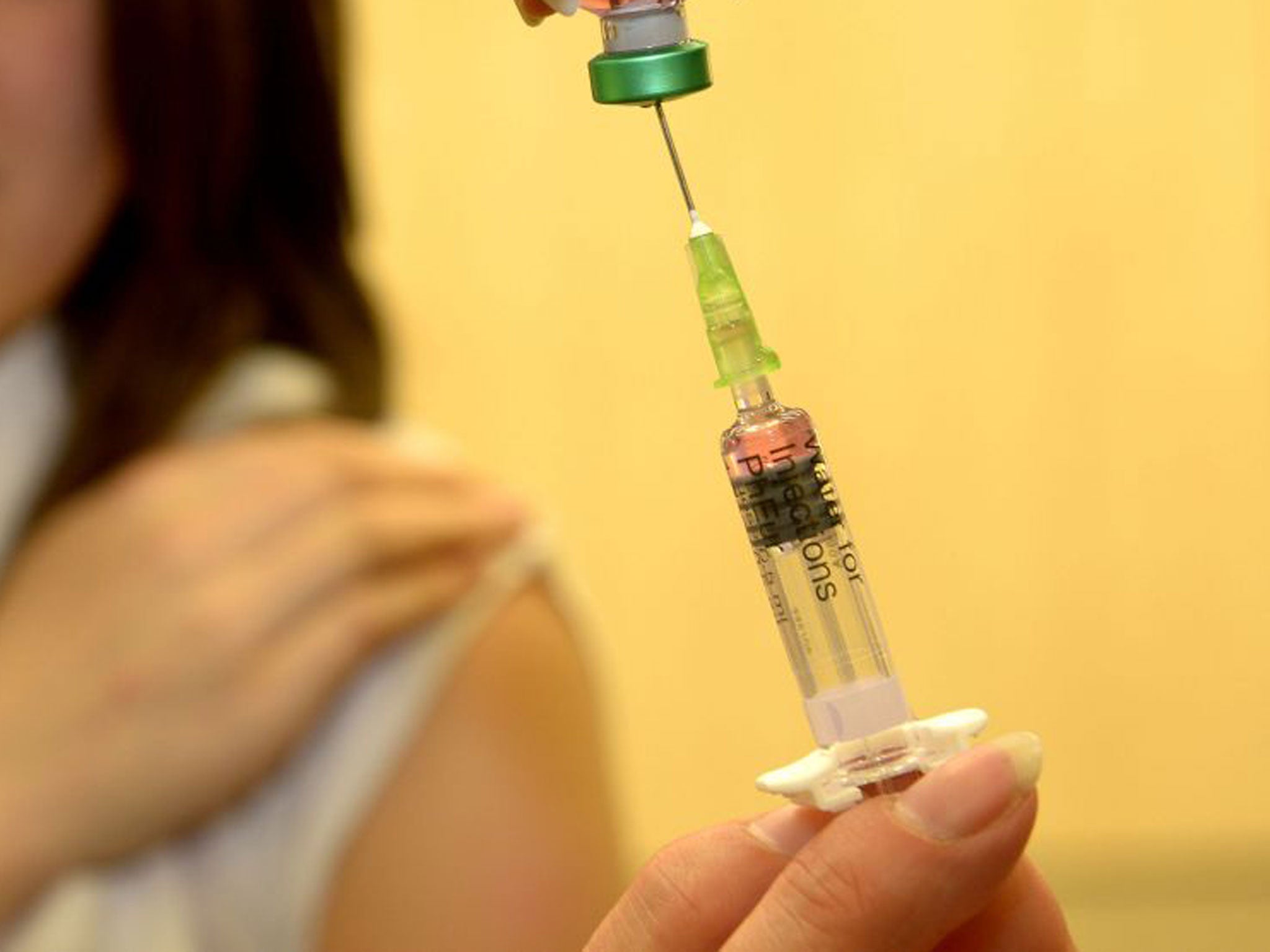Every child to get flu vaccine in bid to prevent epidemic

Your support helps us to tell the story
From reproductive rights to climate change to Big Tech, The Independent is on the ground when the story is developing. Whether it's investigating the financials of Elon Musk's pro-Trump PAC or producing our latest documentary, 'The A Word', which shines a light on the American women fighting for reproductive rights, we know how important it is to parse out the facts from the messaging.
At such a critical moment in US history, we need reporters on the ground. Your donation allows us to keep sending journalists to speak to both sides of the story.
The Independent is trusted by Americans across the entire political spectrum. And unlike many other quality news outlets, we choose not to lock Americans out of our reporting and analysis with paywalls. We believe quality journalism should be available to everyone, paid for by those who can afford it.
Your support makes all the difference.Every child in England and Wales will be vaccinated against flu each year to limit the spread of outbreaks, the Government will announce today.
While flu is very rarely fatal in children, they tend to be the biggest transmitters of the virus which kills around 4,000 people each year and places a huge strain on the health service.
All children aged two will be offered a nasal flu vaccine from this September. The programme will be rolled out to all primary and pre-school children next year, with secondary school pupils starting to be vaccinated in 2015.
The flu programme is part of a wider roll-out of vaccinations across the NHS. As part of the plan, a new shingles vaccination will be available for people aged over 70. Health officials say that the programme will prevent nearly 40 per cent of the 30,000 cases seen every year in older people.
Children under the age of four months will be vaccinated against rotavirus – a highly infectious bug that causes around 140,000 diarrhoea cases a year in under-fives. It is estimated that the vaccine could halve the number of vomiting and diarrhoea cases caused by rotavirus, resulting in 70 per cent fewer hospital stays.
Health officials stressed that the timings of the new programmes had not been affected by the recent measles outbreak – which has focused attention on vaccination and led to a rise in the uptake of the MMR vaccine.
However, ministers believe that in the long-term mass vaccination programmes are a cost-effective way of reducing demand on the NHS at a time of tight financial constraint. The decisions to introduce the new vaccination programmes and update the existing ones were made after the Joint Committee on Vaccination and Immunisation – a panel of independent vaccine experts – studied all the available evidence.
Professor David Salisbury, the Government's Director of Immunisation, said: "We already have a world class vaccination programme in place, so I'm pleased that we will be able to protect even more people against disease starting later this year."
Join our commenting forum
Join thought-provoking conversations, follow other Independent readers and see their replies
Comments